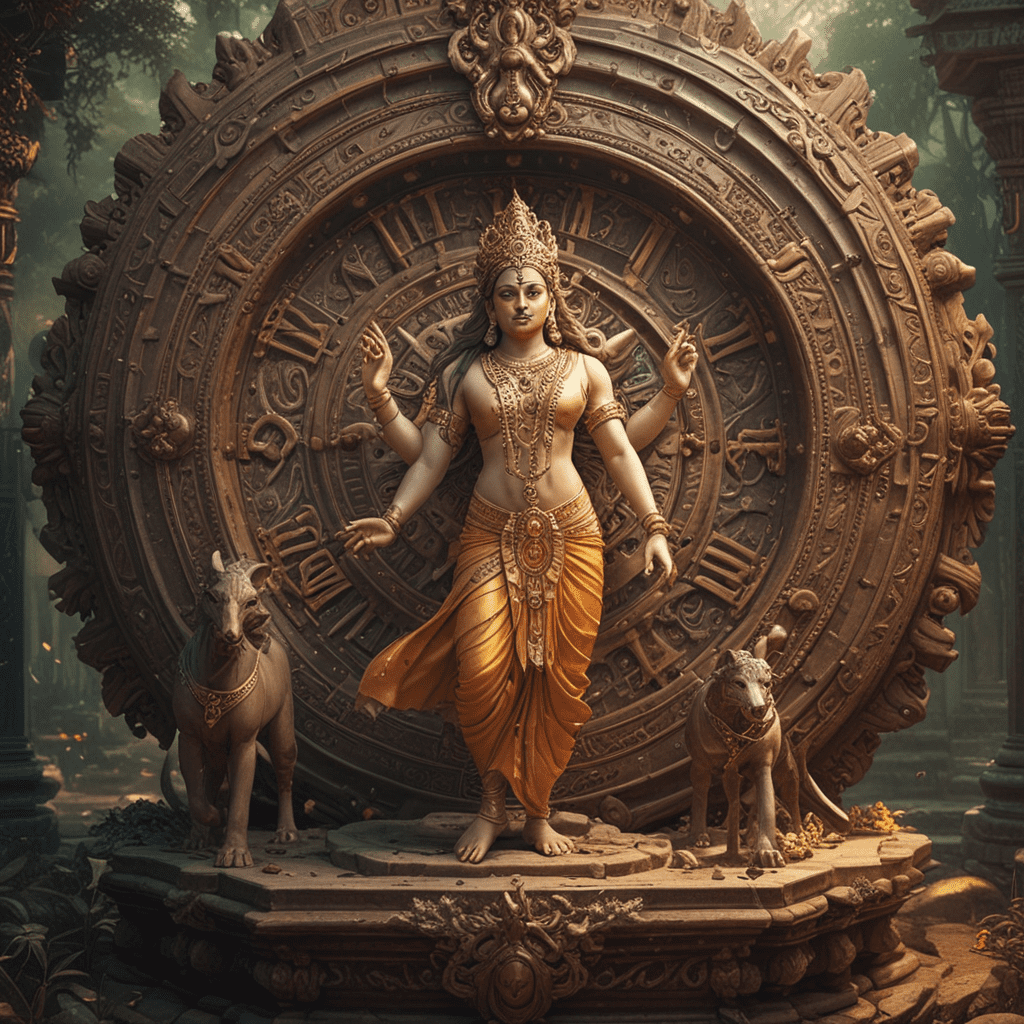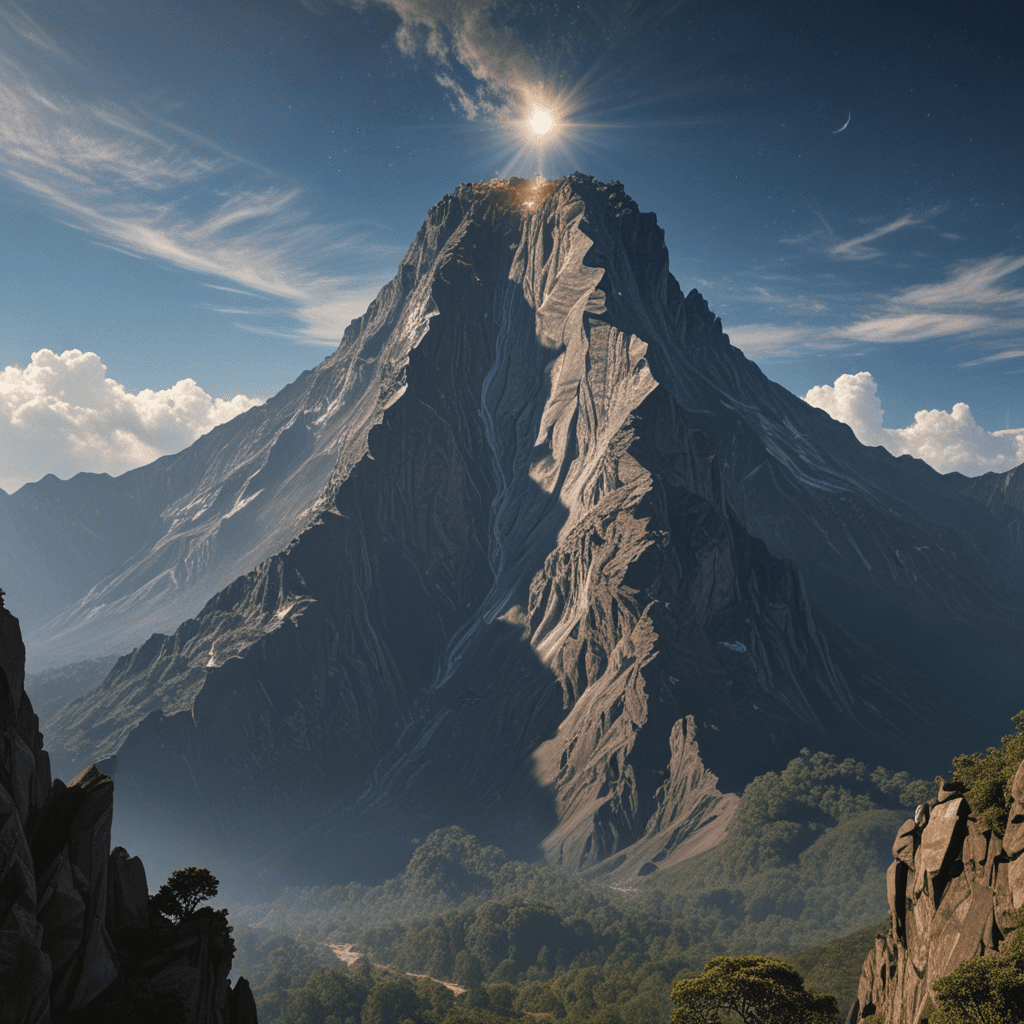The Mythical Aspects of Time in Hindu Mythology
Hindu mythology is rich with mythical aspects of time, which play a significant role in the stories and beliefs of the religion. Time is seen as a cyclical and transformative force, rather than a linear progression. It is believed that the universe is created, destroyed, and recreated in a never-ending cycle. This cycle is governed by various deities and concepts, each with its own unique role in the mythology of time.
The Wheel of Time
The most prominent mythical aspect of time in Hinduism is the Wheel of Time, or the Kalachakra. The Kalachakra is a symbolic representation of the cyclical nature of time, where everything is born, grows, decays, and is eventually destroyed, only to be reborn again. The wheel is divided into 12 spokes, representing the 12 months of the year or the 12 signs of the zodiac.
Brahma: The Creator of Time
Brahma is the Hindu god of creation, and he is also considered the creator of time. It is believed that Brahma created time from his own breath, and that he uses time to order and shape the universe. Brahma is often depicted with four heads, each facing a different direction, representing the four directions of space and the four Vedas, the sacred texts of Hinduism.
Vishnu: The Preserver of Time
Vishnu is the Hindu god of preservation, and he is seen as the preserver of time. Vishnu's role is to maintain the balance of the universe and to protect it from chaos. He is often depicted as sleeping on the cosmic serpent Shesha, who represents the endless cycle of time.
Shiva: The Destroyer of Time
Shiva is the Hindu god of destruction, and he is also seen as the destroyer of time. Shiva's role is to destroy the old and make way for the new. He is often depicted with a third eye, which represents his ability to see beyond the illusions of time.
Kala Purusha: The Personification of Time
Kala Purusha is the personification of time in Hindu mythology. He is depicted as a giant cosmic being who is responsible for the creation, maintenance, and destruction of the universe. Kala Purusha is said to be eternal and unchanging, and he is often associated with the concept of infinity.
The Creation and Dissolution of the Universe
According to Hindu mythology, the universe is created and dissolved in a never-ending cycle. This cycle is known as the kalpa, and it is divided into four yugas, or ages. Each yuga is characterized by its own unique qualities, and the universe gradually declines from a golden age to a dark age. At the end of the dark age, the universe is destroyed and then recreated.
The Four Yugas: Time Periods of Cosmic Cycles
The four yugas of the kalpa are:
- Satya Yuga (Golden Age): This is the first and most perfect yuga. It is characterized by peace, harmony, and prosperity.
- Treta Yuga (Silver Age): This is the second yuga, and it is less perfect than the Satya Yuga. It is characterized by the appearance of dharma, or righteousness.
- Dwapara Yuga (Bronze Age): This is the third yuga, and it is still less perfect than the Treta Yuga. It is characterized by the decline of dharma and the rise of adharma, or unrighteousness.
- Kali Yuga (Dark Age): This is the fourth and final yuga, and it is the most imperfect of all. It is characterized by strife, chaos, and destruction.
Time as a Teacher and a Lesson
Time is seen as a teacher in Hindu mythology. It is believed that time can teach us about ourselves, our world, and our place in the universe. Time can also be a lesson, reminding us of the impermanence of all things.
The Mythical Symbolism of Time
Time is often represented symbolically in Hindu mythology. For example, the Wheel of Time represents the cyclical nature of time, while the personification of time as Kala Purusha represents the eternal and unchanging nature of time. These symbols help us to understand the complex and multifaceted nature of time.
FAQ
Q: What is the role of time in Hindu mythology?
A: Time is seen as a cyclical and transformative force in Hindu mythology. It is believed that the universe is created, destroyed, and recreated in a never-ending cycle. This cycle is governed by various deities and concepts, each with its own unique role in the mythology of time.
Q: Who is the creator of time in Hindu mythology?
A: Brahma, the Hindu god of creation, is also considered the creator of time. It is believed that Brahma created time from his own breath, and that he uses time to order and shape the universe.
Q: How is time represented symbolically in Hindu mythology?
A: Time is often represented symbolically in Hindu mythology. For example, the Wheel of Time represents the cyclical nature of time, while the personification of time as Kala Purusha represents the eternal and unchanging nature of time. These symbols help us to understand the complex and multifaceted nature of time.



